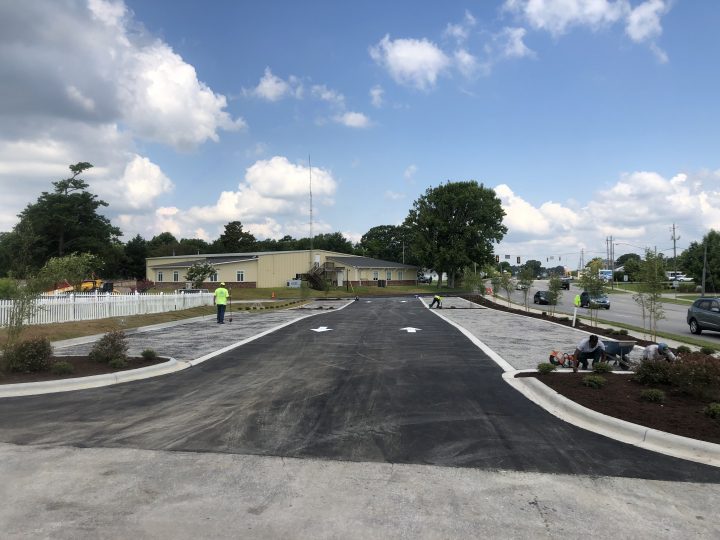
The North Carolina Coastal Federation and its partners this year have worked to reduce more than 7 million gallons of polluted runoff, installed close to 2,400 feet of living shorelines, increased oyster reef and revamped an oyster shell recycling program.
The nonprofit organization announced Thursday in a recap of its 2019 accomplishments that the federation worked with Beaufort, state Wildlife Resources Commission, Wilmington, New Hanover County, Swansboro, University of North Carolina Wilmington and Soil and Water Conservation Districts on low impact development projects to reduce runoff.
Supporter Spotlight
These LID projects, which are put in place to direct runoff into the ground before it can become polluted stormwater, reduced runoff by 7,770,000 gallons, enough to cover three football fields with 6 feet of water, according to the organization. LID techniques include rain gardens, permeable pavers and infiltration chambers.
“That is exactly what we want to happen with our collaborative stormwater projects,” said Lauren Kolodij, deputy director of the federation, in a statement. “Coastal communities learning how to cost effectively reduce runoff so they can replicate LID techniques in new projects and future restoration efforts is what makes the real impact.”
The federation worked with more than 30 partners including area businesses, college groups, schools, community volunteers and nonprofits to design and install 2,379 feet of living shorelines at 16 different soundside properties. A total of 21,987 salt marsh grass plugs were also planted at these sites.
The federation and state Division of Marine Fisheries worked together to add almost 11 acres of oyster reef to the Swan Island Oyster Sanctuary in Pamlico Sound. A total of 40 acres of reef have been created at Swan Island as part of the Senator Jean Preston Oyster Sanctuary Network.
The federation also worked to reinvigorate oyster shell recycling in the state, a program that ended last year due to budget cuts. In 2019 the federation worked with volunteers to recycle nearly 1,500 bushels of shell and will be ramping up the volunteer program in 2020.
Supporter Spotlight
“I am thrilled with our partnerships and the cumulative impact of everyone’s efforts to build back our oyster resources in North Carolina,” said Erin Fleckenstein, coastal scientist with the federation’s Wanchese office.
Also this year, the federation and partners removed more than 18,500 pounds of trash at volunteer shoreline cleanups; the Lost Fishing Gear Recovery Project, part of a statewide marine debris removal effort, resulted in the removal of 3,112 crab pots; and more than 200 tons of marine debris was removed from over 42 miles of coastline.
The North Carolina Coastal Federation publishes Coastal Review Online.







